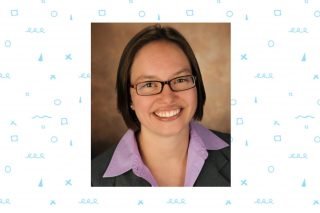Investing Your Time Wisely: Christy Cushing’s Job Search Success Story

Share
Christy Cushing spent her four month job search reaching out to professionals contacts, meeting with a career counselor, and listening to the Find Your Dream Job podcast. After a series of 20 interviews for various positions, Christy decided to invest her time in the positions that actually had more to offer, versus taking every possible interview opportunity. Christy notes, “During the process it’s all about the company, but it’s also important to actively listen to what they’re saying and ask pointed questions to find out if they’re right for you.” Read on for more of Christy’s job search advice, tools, and resources and see how she found her focus and a great job.
What do you do for a career? Who do you work for?
I joined the Utah Department of Health, Tobacco Prevention and Control Program as a Policy Analyst in December 2018. Specifically, I analyze and develop statewide and municipal tobacco control policies intended to reduce tobacco use and prevent youth from starting to use tobacco, as tobacco consumption continues to be the leading cause of preventable death.
Despite Utah’s low cigarette smoking rate at under 9% for adults and under 3% for youth, smoking and vaping among disparate groups ranges between 13-27%. Several factors impact these rates such as geography, employment status, socioeconomic status, education level, race, ethnicity or if you are a member of the LGBT community. Focusing on health equity and eliminating these health disparities, I work to identify potential negative consequences and benefits of specific tobacco control policies to achieve the goal of reducing tobacco use.
How long did it take you to find this job?
Four months, I started looking in last August. I interviewed a total of 20 times in the 16 week period, many of which were 2nd or 3rd interviews for a specific position.
How did you find your job? What resources did you use? What tool or tactic helped the most?
Initially, I relied on local job boards, reaching out to some of my contacts to use as references. Having worked in marketing, employment policy and having a SHRM-CP certification, I applied for marketing, policy-focused and HR-specific positions. Feeling unfocused, I met with a career counselor who gave me the courage to apply for dream job positions I’d originally thought were out of reach.
After a series of successful interviews with no offers, I began consuming the Find Your Dream Job Podcast, listening to a different recorded podcast everyday. I also took an in person class about interviewing.
The emotions of excitement when I found a new position opening, educating myself about the company and interviewing was exhilarating. Then the waiting to hear anything, finding out the company wasn’t actually hiring for the position or someone else was selected felt like a never ending rollercoaster you couldn’t actually get off. Listening to other people’s tips, successes and challenges on the podcast grounded me. It gave me hope when I felt discouraged even if I succeeded in continuing to be invited to interviews.
What was the most difficult part of your job search? How did you overcome this challenge?
Interviewing for companies that wanted free consulting was one of the most challenging aspects of my job search.
At least six companies wanted an entire presentation about a specific question or how to solve a scenario. I quickly learned that these questions were actual problems the organizations faced and they didn’t have an answer to. They choose to use candidate interviews as unpaid brainstorming and consulting opportunities. Only one of these companies actually filled the position.
Instead of going through the time and effort of trying to solve such overarching problems, I learned to spot the one-sided opportunities. Wanting to work for a company that valued my expertise and treated staff as collaborative team members, I began to decline to participate in these types of interviews.
What is the single best piece of advice you would offer other job-seekers?
Invest in taking the time to find out about the position, company and team to learn if they are a good fit for you. During the process it’s all about the company, but it’s also important to actively listen to what they are saying and ask pointed questions to find out if they’re right for you.
Why do you love your job?
I love solving multi-layered policy problems. Tobacco policy involves the layers of federal, state and municipal policy, case law, and the historic master settlement agreement signed over 20 years ago. Though policy tries to be all inclusive and predictive of future issues, emerging tobacco products have posed unforeseen challenges requiring the consideration of new ways of thinking and different targeted solutions.